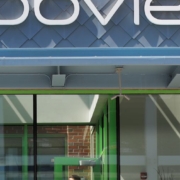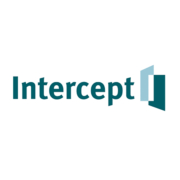Astellas wins FDA approval for hot flash treatment in menopausal women
Astellas wins FDA approval for hot flash treatment in menopausal women
Published: May 15, 2023
By Tristan Manalac
BioSpace
The FDA has approved Astellas’ fezolinetant, now to be marketed as Veozah, for the treatment of moderate to severe vasomotor symptoms in menopausal women, the company and regulator announced Friday.
Vasomotor symptoms (VMS), also known as hot flashes or night sweats, are common occurrences during menopause, arising in 60% to 80% of women in the U.S. In turn, hot flashes lower quality of life and disrupt daily activities. Veozah, approved as an oral once-a-day 45-mg formulation, is the first antagonist of the neurokinin 3 (NK3) receptor approved for these menopausal symptoms, according to Astellas.
The FDA did not give Veozah a boxed warning, but the drug’s label bears precautions for higher liver blood test values, as well as common side effects such as stomach pain, diarrhea, insomnia and back pain.
Veozah uses a “novel mechanism of action” to address VMS at its root cause, Marci English, vice president and head of BioPharma Development at Astellas, said in the press release. Before menopause, the body maintains a strict balance between estrogen and neurokinin B (NKB) levels, which in turn leads to the healthy regulation of body temperature, as maintained by the hypothalamus.
During menopause, however, estrogen concentrations drop and NKB becomes predominant, which disturbs the body’s temperature control system, giving rise to a host of uncomfortable symptoms collectively known as VMS.
Veozah, an NK3 receptor blocker, works by preventing NKB from interacting with its corresponding receptor on hypothalamic neurons, which restores healthy temperature regulation in the body.
Astellas supported its FDA bid for Veozah with data from the BRIGHT SKY clinical development program, which included three Phase III trials enrolling more than 3,000 participants in total.
In February 2021, the company posted positive topline data from SKYLIGHT 1 and SKYLIGHT 2, two late-stage, double-blinded and placebo-controlled studies evaluating Veozah’s 30-mg and 45-mg doses over 52 weeks of treatment. Both studies met their co-primary endpoints, with both Veozah doses significantly reducing the frequency and severity of moderate to severe hot flushes versus placebo.
SKYLIGHT 4, the third study under BRIGHT SKY, is likewise a double-blinded and placebo-controlled trial but is designed to evaluate the long-term safety of Veozah. Findings from this study, presented at the North American Menopause Society Annual Meeting in October 2022, showed both drug doses were safe through 52 weeks of follow-up, with most adverse events being mild or moderate in severity.
SKYLIGHT 4 also found that incidence rates for endometrial malignancy and endometrial hyperplasia were within pre-specified limits.
The FDA accepted fezolinetant’s New Drug Application in August 2022 and, following Astellas’ use of its priority review voucher, set a PDUFA date of February 2023. However, a few days before the target action date, the regulator extended the review window by three more months to allow for more time to assess the company’s data package.
Source: BioSpace











